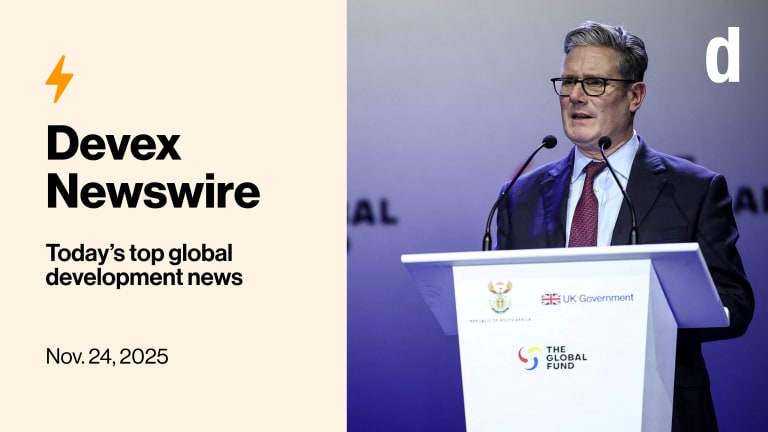
Pressure is mounting on the Global Fund to Fight AIDS, Tuberculosis and Malaria to accelerate reforms and boost value for money, as donors convene in Brussels today to discuss its new funding request.
The Global Fund needs $15 billion to continue its lifesaving work in 2014-2016, officials announced Monday ahead of a two-day meeting in the Belgian capital that is meant to prepare for a pledging conference later this year. This week’s gathering will examine the global health group’s performance and needs assessment.
Developing countries will spend roughly $37 billion in the next three years, according to the Global Fund, and $24 billion will come from other international sources, covering — together with the requested $15 billion for the fund itself — close to 90 percent of the global resource needs to fight the three diseases, estimated at a total of $87 billion.
In an op-ed published on Monday, Bill Gates implores donors to continue supporting the Global Fund. The Bill & Melinda Gates Foundation has invested nearly $1.5 billion in the Geneva-based institution.
But Global Fund officials can expect tough questions this week from donor officials worried about the pace of ongoing reforms meant to boost accountability and cost-effectiveness. While these changes, including the recent introduction of a new funding model, have been widely applauded by industry experts, tales of the fund’s poor oversight of subgrantees and rocky relations with local fund agents continue to circulate.
The United States, which provides more than one-third of the Global Fund’s financing, could be particularly frank in voicing these and other concerns, if a recent global health event in Washington is any indication. Last Friday, at a panel discussion organized by the Center for Strategic and International Studies, a senior U.S. official stressed the need for more oversight.
“We now want to make sure that every dollar that we spend on global health programs is being managed effectively, and that’s a real challenge,” said Leslie Rowe, a U.S. ambassador who joined the State Department’s new Office of Global Health Diplomacy earlier this year. “The most important question is, is it benefiting people on the ground?”
U.S. aid officials stationed in partner countries worry about the Global Fund’s oversight of projects and ability to educate partners about its new funding model, Rowe said. Rowe’s advice to her colleagues, she said, has been to collect details and share them with headquarters.
“We recognize that with the fiscal realities not only here in Washington but around the world, that we have to do things better, smarter and to the extent possible cheaper,” said Nils Daulaire, assistant secretary for global affairs at the U.S. Department of Health and Human Services, at the event.
Still, the Global Fund replenishment is a key global health priority for the United States this year, the speakers were quick to point out. The Obama administration will put a greater emphasis on triangular partnerships, they said, and would lobby hard for other donors to step up and eliminate any funding shortfall that may arise if the United States ended up cutting contributions to the Global Fund due to congressionally mandated belt-tightening.
It’s a scenario global health advocates are dreading since they fear it would have the opposite effect on other donors, encouraging them to cut contributions as well.
Read more development aid news online, and subscribe to The Development Newswire to receive top international development headlines from the world’s leading donors, news sources and opinion leaders — emailed to you FREE every business day.








